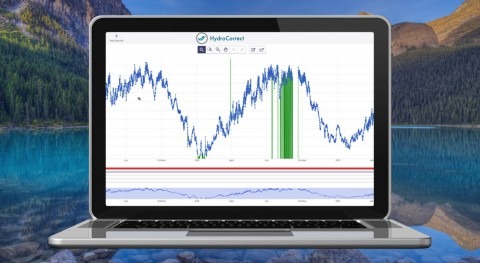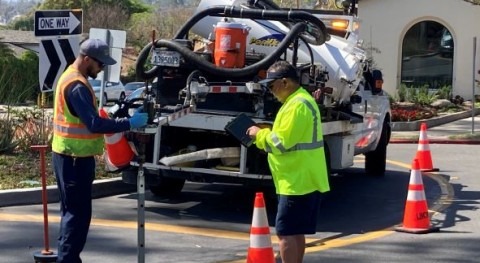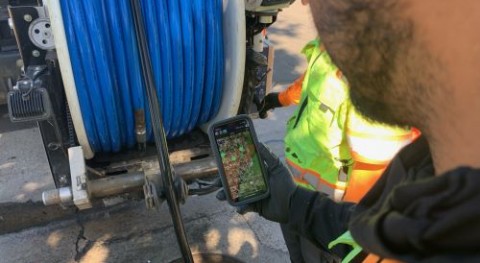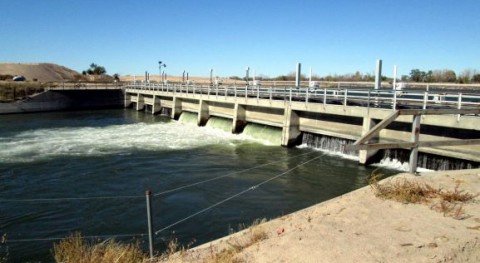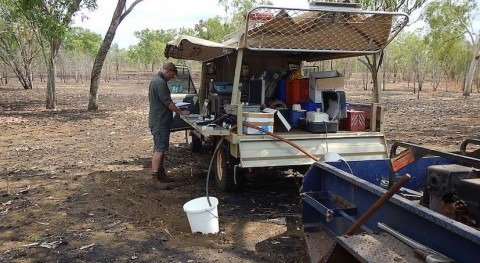With 2.8 million residents, Miami Dade County has roughly 30,000 backflow prevention devices—mechanical valves that prevent the reversal of water once it has passed through the device. Critical to providing clean and safe water, faulty backflow devices can contaminate the potable water supply. The Safe Drinking Water Act makes backflow prevention a critical component of every municipal water distribution system, and compliance is mandatory.
Like most counties, Miami Dade requires certain water customers to install backflow prevention assemblies at their water service connections. Backflow devices are most common at hospitals, assisted living facilities, service stations, auto repair shops, and water customers with lawn irrigation systems. But it doesn’t stop just at installation. Juan Pelay, Chief Meter Operations & Maintenance for Miami Dade County says, “Because the backflow preventer is a mechanical device with springs, moving parts, and rubber seating surfaces that wear over time, the devices need to be tested every year to ensure that the assembly is working properly.”
To identify and address backflow and related safety issues, public and private water professionals, planning and development departments, and health department staff need an efficient, effective way to manage cross-connection control inspections, assembly installations, and annual testing. Juan has been running the Backflow Prevention Program at Miami Dade for almost 25 years. With a little over 1,100 certified testers reporting on 30,000 devices annually, Juan has a team of technical staff to manage the information gathered from the devices in Tokay, a compliance and data management software program from Aquatic Informatics.
Tokay is a secure, central repository that streamlines the administration of backflow prevention programs. It automatically synchronizes water customer records from billing software, continuously updates mailing addresses, and maintains lists of industry-approved backflow assemblies. County staff can schedule activities, generate reports, send notices to water customers, and provide backflow technicians with vital information. “What I like most is the ease of use, and having everything we need on one screen gives us a snapshot of all the cross-connections, so we know where we need to focus.”
The County’s approach combines the power of the cloud with an on-premise database to modernize the test submission process. The utility website is the entry portal for Tokay WebTest, where test results are entered online by utility-approved testers and the tester is automatically charged a $5 fee to help cover program costs. Each night, all test records are automatically downloaded from the cloud to the Miami Dade server and any changes in customer information are synchronized to the tester portal. In the morning, tests are downloaded, approved, accepted into the Tokay database, and the next test date is scheduled electronically. “The field-entry for test data with recurring data syncs is fantastic for us. The WebTest sync takes less than one minute per test; the old method took us 3-4 minutes per test with a dedicated person processing 150 tests a day. Now we can do it all in 10 minutes,” said Juan.
Miami Dade is in total control of who can access the tester portal. Rules can be set to disallow testers or companies with expired certifications and/or test kits. Testers that are in good standing have access to information about the site & assemblies without having to call or put in a request with County staff.
The two other major software programs that the County uses are Oracle for billing and & Mobile Workforce for managing personnel resources. “Because the data in Tokay is so current with the annual updates from testers, and automated weekly synching, we often use it for finding other information. For example, if we want to find out how many meters are in a location or how many accounts are tied to a specific customer. With 450,00 metered connections across the State’s most populous county, it’s a treasure trove of accurate, reliable data for our team to easily access and sort the data they are looking for,” said Juan.
Miami Dade Water & Sewer Department is also required to file an annual report with the State of Florida and uses the Tokay to provide quick and easy reporting by managing data with unlimited filters, giving staff the ability to immediately drill down on any field and view contents across the entire database. This makes it simple to view program statistics, track and define data, and produce reports. The built-in templates can be populated with a click of a button to automate regulatory reporting, saving time, and improving data accuracy by avoiding human error associated with manual data entry.
As most of the county is flat, their most challenging compliance issues are typically with the high-rise apartments. Setting alerts and reminders are particularly useful to ensure the devices are being tested as needed. “With our backflow prevention data being managed so efficiently we now spend the majority of our time dealing with compliance issues. We can focus our resources on minimizing the potential for contamination from backflow and improve our water quality testing to ensure our drinking water is safe,” concluded Juan.







